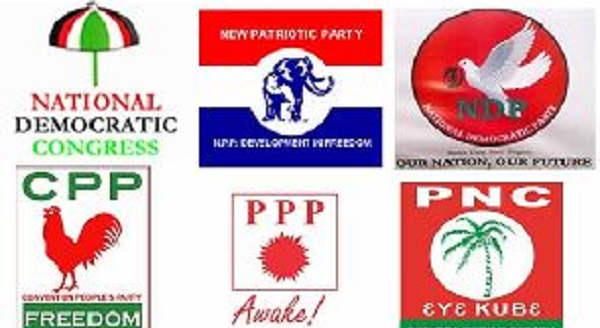
Transiting from multiparty politics to no-party, all-inclusive politics
In the light of the challenges facing various aspects of the socio-economic life in Ghana after 65 years of independence from British colonial rule in 1957 and the factors which have brought us to the present situation, I propose the adoption of a no-party, all-inclusive form of government for the country.
In this article, I will define the various steps that should be taken to ensure a smooth transition from a multiparty system of government to a no-party, all-inclusive system of government.
Public education
For any change to be accepted, the people that will be affected by the change must first be consulted to accept the need for the change. The present challenges facing the country, the causes and the consequences that flow from them must all be clearly explained. It should then be demonstrated to the people how the new system of governance will remove the causes of the challenges.
It is, therefore, proposed that the National Commission for Civic Education (NCCE) must design and launch appropriate programmes to educate and convince the citizens to accept the change.
This should lead the country to a referendum to find out how well the citizens of Ghana accept the changes from the present multiparty system of government to the new no-party, all -inclusive system of government.
Whatever be the case, the constitution should, therefore, be changed to reflect the will of all the people. As such, the people who will prepare the constitution should be drawn from all spheres and walks of life in Ghana.
Elections
Based on the outcome of the referendum and possible drafting of a new constitution, elections will then be conducted by the Electoral Commission for Members of Parliament (MPs) and the Executive President of Ghana.
The principle of progressive selection, as has been used in the Miss Universe contest, will be used to elect the MPs and the Executive President.
Transiting from multiparty politics to no-party, all-inclusive politics
Ing Ebo Aggrey-Mensah
In this case, the election of MPs will be conducted at two levels. The first will be at the town level and the second at the constituency level.
At the town level, aspiring candidates will campaign for a specified period of time. The electorate will then vote to elect one person to represent the town.
The successful candidates from the town level election will then campaign for a specified period of time. The voters in the constituency will then vote to elect the successful candidate as the MP for the constituency.
Executive President
It is proposed that the election of the Executive President of Ghana will be conducted at three levels.
In the first instance, aspiring candidates will campaign for a specified period of time. An election will then be conducted to elect the successful candidate to represent the district.
That will be escalated to the regional level where the successful candidates from the districts in the region will then campaign for a specified period of time. An election will then be conducted to elect the successful candidate who will represent the region.
Successful candidates at the regional level will then be given a specified period of time to campaign at the national level before all the voters in the country will then vote to elect the Executive President of Ghana.
Funding elections
The state will be expected to finance all the costs associated with the elections, and pay for such items as mounting of platforms, printing of posters and provision of vehicles mounted with loud speakers.
Unlike the present arrangement where one day is used to elect both the MPs and the Executive President, the election of the MPs and the Executive President in the new arrangement, involving elections at different levels, will extend over a number of days.
Handing over
The transition from the multiparty system of government to the no-party, all-inclusive system of government will involve a number of steps. A specific period of time will be allocated to each step, indicating the starting and ending times. A period of six months is to be allowed after the completion of all the steps before the sitting president hands over to the newly elected Executive President of Ghana.
Conclusion
Since we attained independence from the British colonial rule in 1957, both civilian and military regimes have administered the affairs of the country. The civilian administrations have mainly employed the multiparty system of governance.
Unfortunately, after 65 years of independence, there are many challenges in various areas of the socio-economic life in the country.
It is my hope and expectation that the adoption of the no-party, all-inclusive system of governance which will employ the skills and talents of all the people in the country and a long-term National Development Plan, which will be regularly updated, will bring about a significant improvement in the lives of Ghanaians and ensure sustained peace and security in the country.
The writer is a former Managing Director of the then Ghana Posts and Telecommunications and now Ghana Posts and a member, the 1978 Constitutional Drafting Commission.
